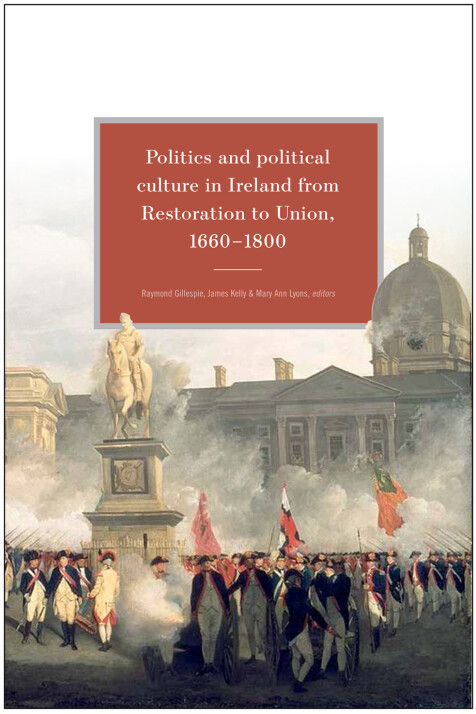Politics and political culture in Ireland from Restoration to Union, 1660-1800
Essays in honour of Jacqueline R. Hill
Raymond Gillespie, James Kelly & Mary Ann Lyons, editors
Political culture is not an idea that many historians of Ireland have engaged with, preferring more straightforward ways of thinking about the distribution of political power through institutions such as the vice regal court, parliament or the law. The essays in this volume take an organic approach to the way in which power is made manifest and distributed across the social world, considering such diverse themes as the role of political life in identity formation and maintenance, civic unity and the problem of urban poverty in Dublin, the role of money in the exercise of authority by Dublin Corporation, public ritual and ceremony in political culture, rumour and rancour in provincial Ireland, the public and the growth of Dublin city, and the Belfast/Bordeaux merchant, John Black III’s vision of Belfast society in the era of improvement. By focusing on the idea of political cultures and how they intersected with more formal political structures, these essays reveal new and unexpected disjunctions that contemporaries were well aware of, and carefully managed, but which have been marginalized by historians. This volume resituates power where it was exercised on a daily basis and in doing so opens fascinating windows into past worlds in pre-modern Ireland.
Contributors: Toby Barnard, Vincent Comerford, Bernadette Cunningham, Raymond Gillespie, David Hayton, James Kelly, Colm Lennon, Mary Ann Lyons, Brendan Twomey and Jonathan Wright.
Raymond Gillespie and Mary Ann Lyons teach in the Department of History, Maynooth University. James Kelly teaches in the Department of History, Dublin City University.

